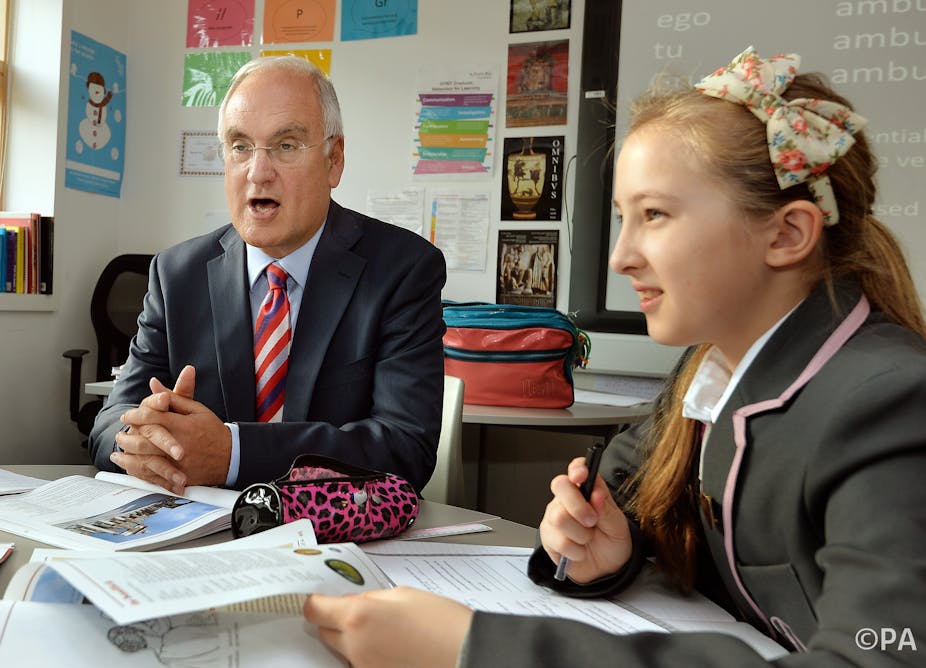The Department of Education has been issued a clear warning by the National Audit Office (NAO) over the way it oversees schools in England. Its new report recommends the government should be better aware about the effectiveness of local authorities, academy trusts and their sponsors to manage schools.
With 1.6m children still attending schools that are not “good” or “outstanding”, the government has also been told to take a closer look at the esimated £382m spent in 2013-14 on oversight and whether the money is being well spent.
The NAO suggests that Ofsted could play a key role in providing this insight. Crucially, it recommends that Ofsted should be authorised to inspect the chains of trusts and sponsors that run academies in the same way that it used to inspect local education authorities. The secretary of state for education, Nicky Morgan, has so far resisted calls for Ofsted to inspect academy chains.
To be able to inspect multi-academy trusts or sponsors, Ofsted would need to develop new inspection frameworks. These would need to authorise its inspectors to make additional visits to academy trusts and sponsors to assess the quality of the governance and oversight, instead of just the quality of schools.
Right for a ‘self-improving’ system?
The question is whether this is the best way forward, given the Department for Education’s current focus on moving the education system towards a “self-improving system”. This means more and more schools are co-operating in networks, where teachers and head teachers exchange good practice. These must remain relevant to particular local contexts – so schools are not told to impose what worked in an affluent London borough on a school in a remote coastal town.
The way schools and authorities operate in this “networked system” needs to become more localised, rather than dictated by a national inspection framework which treats all schools and their governing bodies in a similar manner. Instead, a group of schools and authorities should step up to take a joint responsibility for how well a school is functioning. Ofsted inspections need to reflect this by evaluating how schools and authorities take on that joint responsibility.
School improvement is not simply a linear process of inspection, intervention and improvement of individual schools and of individual authorities. If the Department of Education really wants to move towards a self-improving school system it needs to move away from thinking that individual schools operate in a vacuum.
More guidance needed
But we need more information about how this kind of inspection system might work. How can we ensure that education leaders build each school’s capacity to improve by strengthening the co-operation between teachers and building a culture of high-trust evaluation and learning? How do we know that school-led improvement does not recycle and replicate Ofsted-endorsed strategies and good practices that may be ineffective in some contexts?
Unfortunately, the NAO report does not ask nor answer these questions but strongly builds on the idea of schools and governing bodies operating in isolation.
What is needed is an updated Accountability System Statement – the document that government departments are required to produce annually detailing how they make sure the money they distribute to local bodies is accounted for. The Department of Education’s statement needs to reflect on where co-operation between schools and authorities is potentially ineffective.
It should also point out where schools and their authorities might face obstacles for making improvements, such as when competition between schools limits the amount of co-operation between them. It should also be clear about instances where co-operation actually takes up time and energy that could better be invested in improvement efforts by individual schools.
Inspect a school’s partnerships
In a recent paper, Jane Perryman, Ken Spours and I reflected on an inspection model that would fit such a localised and decentralised context of school-to-school evaluation and improvement.
We explained a need to revise inspection to encourage local decision-making and local structures and networks for improving schools. Inspections should assess whether a school is effectively working in partnership with other schools to improve and should inspect all schools who are working in a federation, chain or school improvement partnership at the same time.
England’s inspection system needs to evaluate and assess the quality and functioning of chains of schools, but with a focus on supporting improvement in local situations. The Department for Education needs to think about such approaches and will hopefully do so when responding to the NAO’s report.
Next read: Why school systems need to be more like the Tour de France

